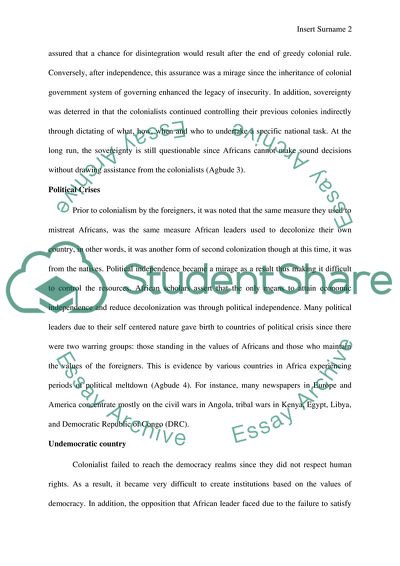Cite this document
(Problems that Africans Inherited from Colonialists and Their Effects Coursework - 1, n.d.)
Problems that Africans Inherited from Colonialists and Their Effects Coursework - 1. https://studentshare.org/politics/1810997-african-politics
Problems that Africans Inherited from Colonialists and Their Effects Coursework - 1. https://studentshare.org/politics/1810997-african-politics
(Problems That Africans Inherited from Colonialists and Their Effects Coursework - 1)
Problems That Africans Inherited from Colonialists and Their Effects Coursework - 1. https://studentshare.org/politics/1810997-african-politics.
Problems That Africans Inherited from Colonialists and Their Effects Coursework - 1. https://studentshare.org/politics/1810997-african-politics.
“Problems That Africans Inherited from Colonialists and Their Effects Coursework - 1”. https://studentshare.org/politics/1810997-african-politics.


